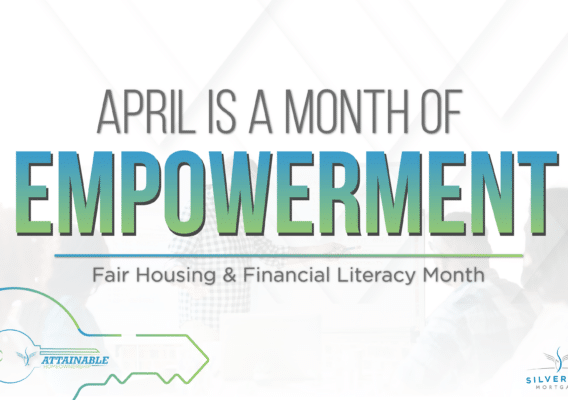Searching for a home can seem daunting. After all, it’s a huge financial commitment that will stay with you for several years. Balancing your wants and needs while also staying within a certain budget can be stressful. However, understanding the process and having a plan can help make this task smooth and less stressful. In this blog post, we’ll be discussing ways that you can streamline your home search and get to the closing table with easier.
It’s important to know that getting pre-approved for a mortgage loan is typically the first step to homeownership. Many people believe that finding your dream home is the start of the journey, but what happens when you find your dream home…and can’t afford it? That is why the mortgage process should actually begin with having a lender determine how much you’re eligible to borrow. Among other things, this is done by reviewing your credit, income, and employment history. Once pre-approved, you’ll get a letter stating that you can afford a loan up to a certain amount, giving you the green light to start your home search.
Once you’re ready to start the home search, you may want to consider the benefits of working with a licensed real estate agent. For starters, agents have something called “fiduciary” responsibility meaning that they are legally obligated to put your interests above their own in some circumstances. This comes with a duty of confidentiality as well as having someone competent in your corner who understands how to navigate what lies ahead. In addition, agents have valuable knowledge of current market trends and can offer much- needed objectiveness. For instance, just because you have an emotional reaction to a specific home feature doesn’t mean it’s a good fit; your agent may be able to point that out and suggestt a more reasonable path. They’ll help you make an unbiased and informed decision, which can ensure that you’re making the best financial decision for your future. Many agents also have a list of local lenders, home inspectors, and other helpful services to make it easier to find other third-party vendors. Lastly, an agent’s negotiating skills and familiarity with the required documents and paperwork can get you through closing day with less stress than if you did it on your own.
Now to the fun stuff, house hunting! There is a lot to consider when shopping for your future home. It may be a good idea to start by making a list of “wants” versus “needs”. Think of everything that would be included in your dream home while also anticipating that some concessions may need to be made. Sort them by order of importance. If you’re buying the home with a partner, have them do the same thing and compare lists to see where you’re in agreement. Next, consider the items that can’t be easily changed without spending large sums of money such as square footage or the number of bedrooms and bathrooms. On the flip side, what features are cosmetic and can be easily changed after moving in? The last thing you want to do is pass up a promising property because you can’t see past the wall color. Having an open mind and seeing a home’s potential may pay off in the long run.
You’ll also need to consider the location of your home as well as the neighborhood. As far as the home itself, consider its lot size and proximity to neighbors. Does the backyard slope downward? Can you handle the lawn care maintenance? Are there sidewalks out front? Can you see into the neighbor’s bedroom? Are you okay with the answers to those questions? These are all things that can’t be changed once you’ve closed. As far as the neighborhood, think about how close it is to where you work, to parks, shopping and other amenities for you might enjoy. Also, what HOA fees, if any, are required?
While considering how to maximize your success while house hunting, there are certainly mistakes to avoid while you’re at it. For instance, making the parameters of your search too narrow or too broad may cause more headaches than they’re worth. Don’t waste your valuable time looking at every house just because you can. Have set guidelines when deciding on which homes to look at by knowing which cities, neighborhoods, or other amenities you’re looking for. Another crucial mistake is not acting fast enough. The real estate market is finicky and a property you looked at yesterday may not still be available today. You must be ready to pull the trigger on a property or risk losing out. If you think you’ve found a great home but want to keep looking, you need to be okay with the fact that it may not be an option when you circle back to it. Finally, think about the future and how your home fits into that. Are you wanting to start a family? While you can always sell your home, it’s best to consider how you can grow with your home as opposed to growing out of it.
Typically, it can take anywhere from six weeks to six months to buy a home, depending on several factors. However, having a plan for the house-hunting portion of the process can be a huge help in not only feeling confident in your decision but speeding up the entire transaction. Don’t forget that the start of your home buying journey begins with finding an experienced lender who will work to find the right home loan for you. At Silverton Mortgage, we know that mortgages are not one-size-fits-all and we work with each of our borrowers to find the exact program to fit their specific needs. Visit silvertonmortgage.com to find an licensed and experienced mortgage professional today and let us help you get one step closer to searching for your dream home.
You Might Also Like

Navigating the Mortgage Maze: The Mortgage Process Simplified

April: The Month of Empowerment

